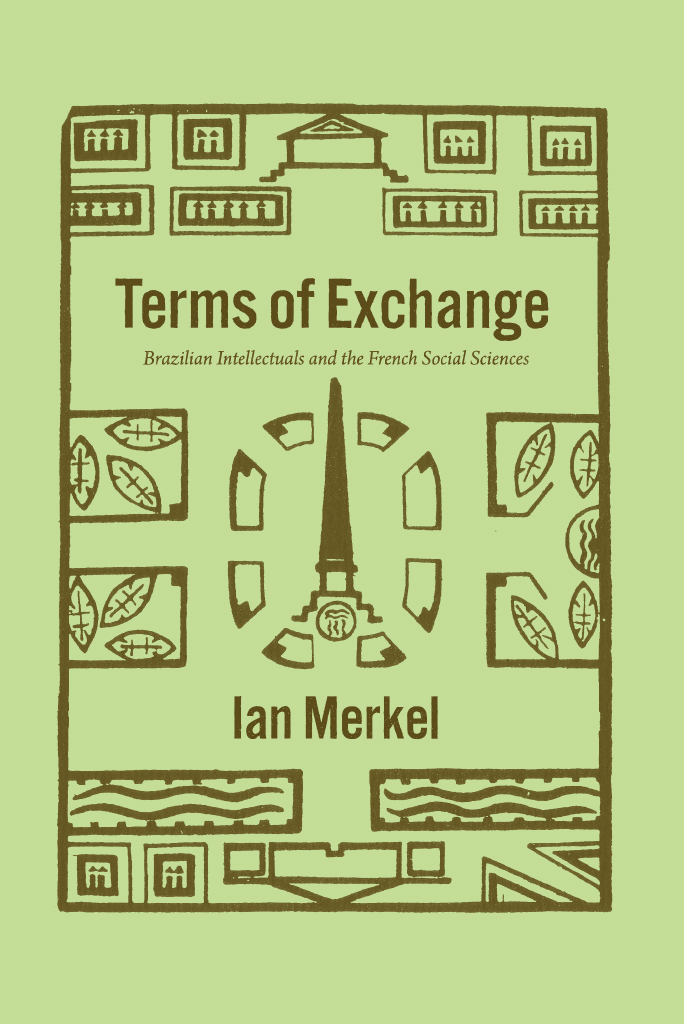
Terms of Exchange

SERIES EDITOR
Darrin McMahon, Dartmouth College
After a period of some eclipse, the study of intellectual history has enjoyed a broad resurgence in recent years. The Life of Ideas contributes to this revitalization through the study of ideas as they are produced, disseminated, received, and practiced in different historical contexts. The series aims to embed ideasthose that endured, and those once persuasive but now forgottenin rich and readable cultural histories. Books in this series draw on the latest methods and theories of intellectual history while being written with elegance and lan for a broad audience of readers.
Terms of Exchange
Brazilian Intellectuals and the French Social Sciences
Ian Merkel
The University of Chicago Press
CHICAGO & LONDON
The University of Chicago Press, Chicago 60637
The University of Chicago Press, Ltd., London
2022 by The University of Chicago
All rights reserved. No part of this book may be used or reproduced in any manner whatsoever without written permission, except in the case of brief quotations in critical articles and reviews. For more information, contact the University of Chicago Press, 1427 E. 60th St., Chicago, IL 60637.
Published 2022
Printed in the United States of America
31 30 29 28 27 26 25 24 23 22 1 2 3 4 5
ISBN-13: 978-0-226-81936-5 (cloth)
ISBN-13: 978-0-226-81979-2 (paper)
ISBN-13: 978-0-226-81937-2 (e-book)
DOI: https://doi.org/10.7208/chicago/9780226819372.001.0001
Publication of this work was supported by a grant from the Socit des Amricanistes.

Library of Congress Cataloging-in-Publication Data
Names: Merkel, Ian, author.
Title: Terms of exchange : Brazilian intellectuals and the French social sciences / Ian Merkel.
Other titles: Life of ideas.
Description: Chicago : University of Chicago Press, 2022. | Series: The life of ideas | Includes bibliographical references and index.
Identifiers: LCCN 2021042919 | ISBN 9780226819365 (cloth) | ISBN 9780226819792 (paperback) | ISBN 9780226819372 (ebook)
Subjects: LCSH: Universidade de So Paulo. | Social sciencesBrazilSo PauloHistory. | Social sciencesFranceHistory. | IntellectualsBrazilSo Paulo.
Classification: LCC H53.B6 M47 2022 | DDC 300.981/61dc23
LC record available at https://lccn.loc.gov/2021042919
 This paper meets the requirements of ANSI / NISO Z39.48-1992 (Permanence of Paper).
This paper meets the requirements of ANSI / NISO Z39.48-1992 (Permanence of Paper).
For Mariella and Antonina, with love
Contents
Map of Brazil, 1981
The University of So Paulo, 1936
France-Amrique Committee, 1939
Photograph of Braudel, Maug, Dina Lvi-Strauss, and others
Dina and Claude Lvi-Strauss in North Paran
Anthropologists at the Jardim das Princesas (Museu Nacional)
Bastide in Ifanhin/Briki (Benin)
Postcard of bumba-meu-boi
Monbeig with the CNRS delegation to Cuba
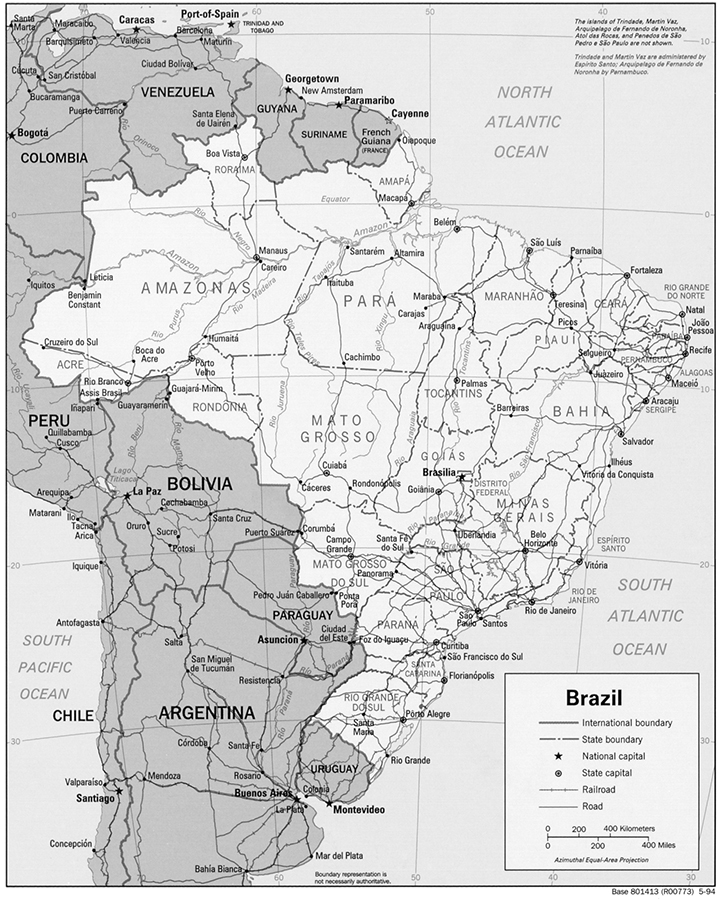
Frontispiece Map of Brazil, 1981. Perry-Castaeda Library Map Collection, The University of Texas at Austin.
Fernand Braudel, one of the most eminent historians of the twentieth century, once declared, It was in Brazil that I became intelligent. Roger Bastide, a pioneer of Afro-Brazilian studies, human geographer Pierre Monbeig, and a number of other prominent social scientists also spent their formative years in Brazil, where they combined fieldwork with new methodological approaches that would prove foundational for scholarly conversations about the global economy, temporality, syncretism, race, and social structure. This book makes the case that Brazilian intellectuals such as Mrio de Andrade, Caio Prado Jr., Arthur Ramos, Gilberto Freyre, and Florestan Fernandes were crucial partners in framing these conversationsand indeed, in making them possible.
Well before Braudel was synonymous with the Annales school or the longue dure, he, like many other French scholars, began his university career in Brazil. In 1934, the year before his arrival, So Paulo inaugurated Brazils first full-scale university, the University of So Paulo (USP). In its second year, USP called upon younger, less-established figures to join its faculty. Braudel, for example, had been teaching secondary school for ten years in Algeria. He had yet to complete his ambitious study of the history and geography of the Mediterraneanor really start writing it, for that matterwhen he first encountered Caio Prado Jr.
Prado hailed from the very planter and commercial elite that founded USP and gave French scholars such as Braudel the opportunity to teach and research. He had already published two books: the first, a historical analysis of Brazils political evolution; the second, a favorable account of the new world of the USSR. Prior to Braudels arrival, Prado had helped to initiate the Associao dos Gegrafos Brasileiros (Association of Brazilian Geographers)an innovative, interdisciplinary organization in which Braudel would actively participate during his time in Brazil. Because of his political involvement with the leftist Aliana Nacional Libertadora, however, Prado was imprisoned and ultimately exiled shortly after his encounter with Braudel. This would delay more extensive conversations between the two until Braudels return to France.
After two years teaching at USP, Braudel landed his first job in Paris. Hired as a Hispanist at the cole Pratique des Hautes tudes in 1937, he taught courses on topics such as the Iberian expansion in America.
During those years, Prado was in the midst of researching what would become his most significant work. Formao do Brasil contemporneo, published in 1942, offered a new understanding of colonial Brazil that examined the structures of unequal trade and peripheral capitalist accumulation.
Well after Prados return to Brazil in 1939 and into World War II, he and Braudel continued to correspond. Just before the outbreak of combat between France and Germany, Braudel wrote Prado: I think about our conversations of yesterdaylet us hope there will be those of tomorrow., the young Braudels exchanges with and readings of Prado influenced his conception of the Mediterranean in at least two ways. They encouraged Braudel to consider the Atlantic as the geographical extension of the inner Mediterranean Sea and as the temporal starting point for its secular decline.
Braudels Brazilian intelligence is illustrative of a much broader pattern of exchange. Mrio de Andrade, for example, helped to mount Lvi-Strausss expeditions into the Brazilian interior that made him famous. Others, such as Gilberto Freyre and Arthur Ramos, proved invaluable interlocutors for Roger Bastide and crucial for postwar thinking about race relations more generally. Brazil and Brazilians, whether as objects of study, sources of institutional support, or a properly intellectual network, came to feature prominently in the French social sciences. This is the story of both how this came to be and how it largely came to be forgotten, until now.
Next page
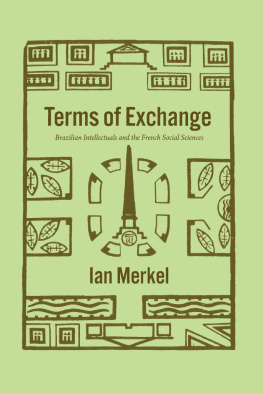



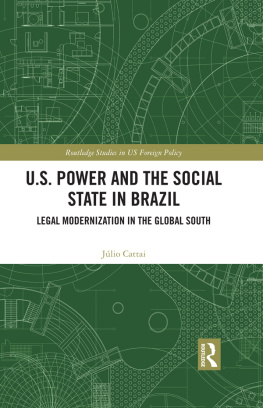
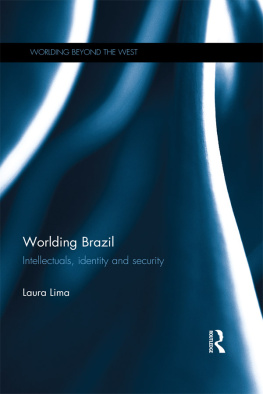

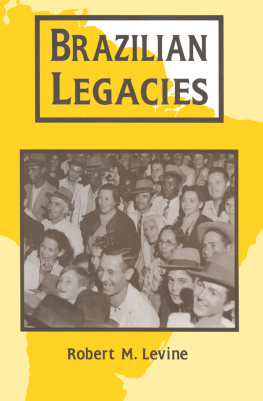
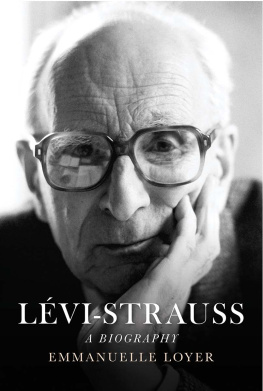




 This paper meets the requirements of ANSI / NISO Z39.48-1992 (Permanence of Paper).
This paper meets the requirements of ANSI / NISO Z39.48-1992 (Permanence of Paper).